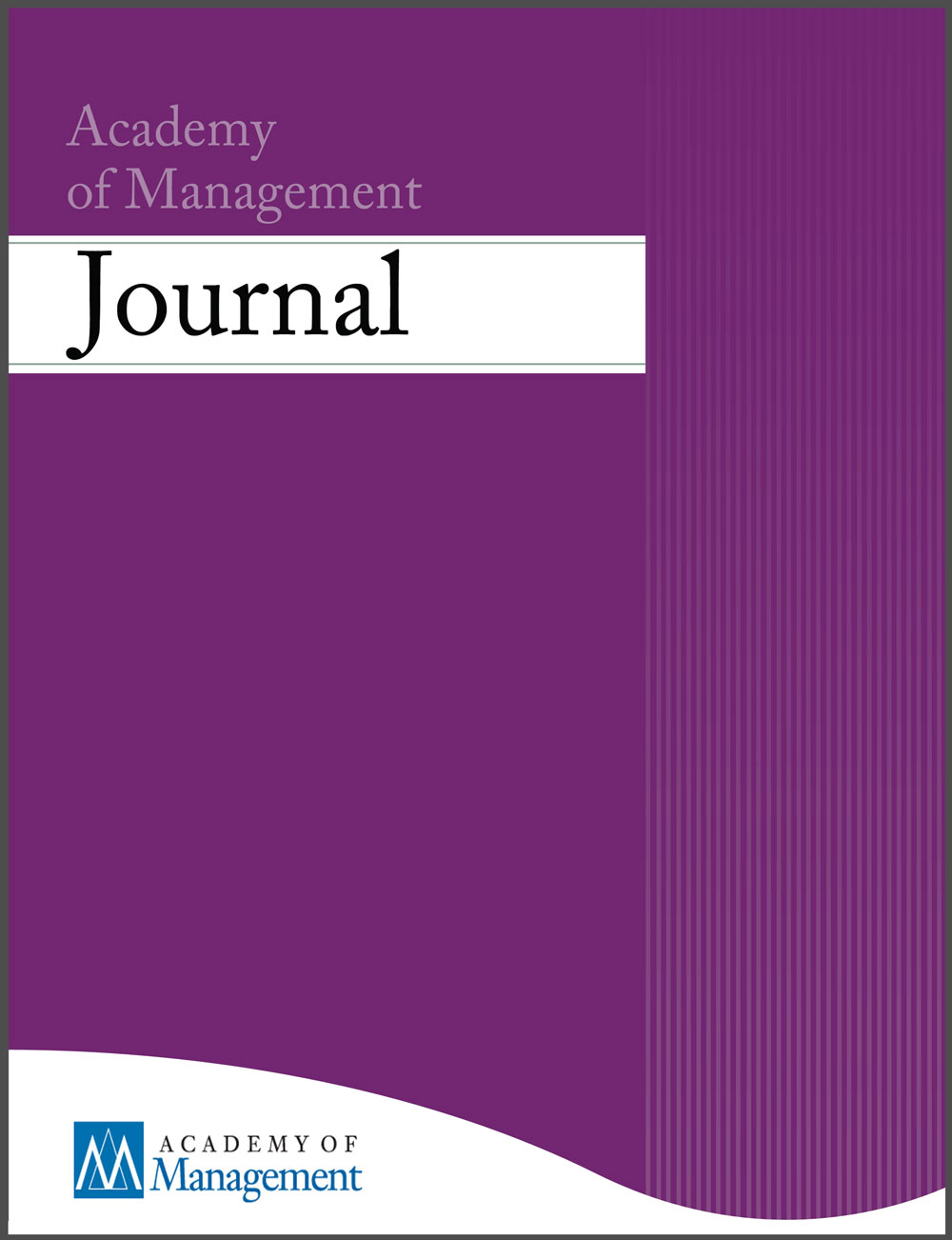Does Identification Hurt or Help Under Identity Threat? The Exacerbating Role of Identity Centrality on Feeling Offended and the Buffering Role of Coworker Solidarity on Identity-Protection Behaviors
IF 10.5
1区 管理学
Q1 BUSINESS
引用次数: 0
Abstract
Research on how identification impacts the experience of identity threat has uncovered mixed findings, which the current work helps resolve. We uncouple two conceptually distinct aspects of identification that research has conflated: identity centrality and solidarity. Identity centrality is focused inward on the extent to which an identity is important and salient to an individual, whereas solidarity is focused outward on the strength of the bond an individual perceives with another person or group. We propose that higher centrality exacerbates reactions to identity threat and ultimately predicts identity-protection responses (e.g., derogating or avoiding the threat source), whereas greater solidarity with coworkers mitigates negative responses stemming from identity threat. We consider two groups with whom individuals might experience solidarity in organizations: (1) others who share the threatened identity and (2) coworkers. We test and find support for our hypotheses in two studies using two-wave, time-lagged online experimental methods investigating political identity (Study 1) and working parent identity (Study 2). Notably, solidarity with coworkers provides a buffering effect while solidarity with others sharing the threatened identity does so to a lesser degree. Our work helps reconcile how and why identity centrality and certain forms of solidarity can differentially influence identity threat reactions.身份威胁下身份认同是有害还是有益?身份中心性对冒犯感的加剧作用和同事团结对身份保护行为的缓冲作用
关于身份认同如何影响身份威胁体验的研究结果喜忧参半,目前的研究有助于解决这一问题。我们将研究中混淆的身份认同的两个概念上截然不同的方面:身份中心性和团结。身份中心性是指身份对个人的重要和突出程度,而团结性则是指个人与他人或群体之间的联系强度。我们提出,较高的中心性会加剧对身份威胁的反应,并最终预测出身份保护反应(如贬低或回避威胁源),而与同事之间较强的团结则会减轻因身份威胁而产生的负面反应。我们考虑了个人在组织中可能与之团结一致的两个群体:(1)其他认同受威胁身份的人和(2)同事。我们采用两波时滞在线实验方法,对政治认同(研究 1)和工作父母认同(研究 2)进行了两项研究,检验并发现支持我们的假设。值得注意的是,与同事的团结具有缓冲作用,而与其他认同受到威胁的人的团结则作用较小。我们的工作有助于协调身份中心性和某些形式的团结如何以及为什么会对身份威胁反应产生不同的影响。
本文章由计算机程序翻译,如有差异,请以英文原文为准。
求助全文
约1分钟内获得全文
求助全文
来源期刊

Academy of Management Journal
Multiple-
CiteScore
16.00
自引率
5.70%
发文量
99
期刊介绍:
The mission of the Academy of Management Journal (AMJ) is to disseminate empirical research that rigorously tests, extends, or constructs management theory while enhancing management practice. The journal welcomes diverse empirical methods, including qualitative, quantitative, field, laboratory, meta-analytic, and mixed methods. For publication in AMJ, research must exhibit robust empirical and theoretical contributions, with manuscripts emphasizing the practical relevance of these contributions to management practice. Authors are encouraged to craft original, insightful, interesting, and theoretically bold research that makes a substantial "value-added" contribution to the field's comprehension of a given issue or topic.
 求助内容:
求助内容: 应助结果提醒方式:
应助结果提醒方式:


